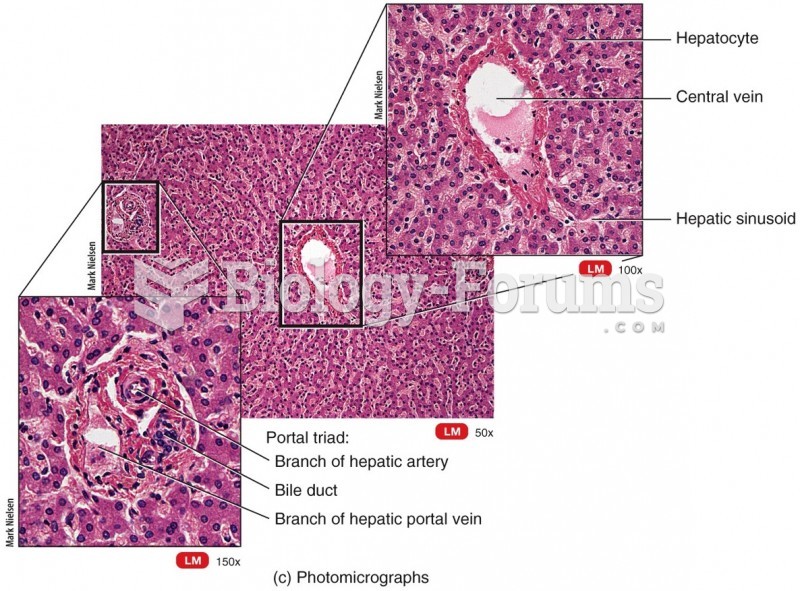|
|
|
Thyroid conditions may make getting pregnant impossible.
Cytomegalovirus affects nearly the same amount of newborns every year as Down syndrome.
GI conditions that will keep you out of the U.S. armed services include ulcers, varices, fistulas, esophagitis, gastritis, congenital abnormalities, inflammatory bowel disease, enteritis, colitis, proctitis, duodenal diverticula, malabsorption syndromes, hepatitis, cirrhosis, cysts, abscesses, pancreatitis, polyps, certain hemorrhoids, splenomegaly, hernias, recent abdominal surgery, GI bypass or stomach stapling, and artificial GI openings.
When blood is exposed to air, it clots. Heparin allows the blood to come in direct contact with air without clotting.
The heart is located in the center of the chest, with part of it tipped slightly so that it taps against the left side of the chest.







